Once upon a time, even before the United States was a country, we had a death penalty. To some extent it existed in the northern colonies to punish religious heretics and witches and the like, but for the most part it was in the southern colonies to help enforce slavery. Many things related to slavery were capital crimes including helping slaves escape and inciting slaves to run away. Even to this day, the slave states are where we find most of the executions.
The English Bill of Rights in 1691 had prohibited cruel and unusual punishment and then the Eighth Amendment was adopted in 1791 saying about the same thing. This was not meant to end the death penalty though, but only torture before causing death. Also, although states had their own prohibitions against cruel or unusual punishment, this part of the Eighth Amendment did not originally apply to the states. The Supreme Court in In Re Kemmler in 1889 rejected an argument that the 8th Amendment applied to the New York when this state started electrocuting people to kill them.
Finally, in the case of Robinson v. California in 1962 the prohibition against cruel and unusual punishment was applied to the states, but this was not a death penalty case, but prohibited imprisoning Mr. Robinson just because he was a drug addict and had needle tracks in his arms. But we get ahead of the story.
The historical link between slavery and the death penalty held sway as the northern states moved into a period of reforming the death penalty before the civil war. The southern states saw a need to discipline a captive workforce and had no similar reform movement. The racist purpose for capital punishment was openly discussed. This situation became a national embarrassment when the racism in using the death penalty became an international incident when the Scottsboro Boys were sentenced to death. When the seven young black men accused of rape were given the death penalty, essentially without lawyers and with little evidence, the nature of the American death penalty was given an international stage. The Supreme Court in 1932 decided the case of Powell v. Alabama. There were many glaring problems with the sentence, but the court found a way to correct the embarrassment of this one case without greatly impacting the system of using the threat of death to control an oppressed caste. The Court did not say a capital defendant should always have a lawyer, but that in a capital case where the defendant is unable to employ counsel and is incapable of adequately making his own defense because of ignorance, feeble-mindedness, illiteracy or the like, he should get a lawyer.















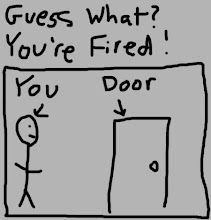










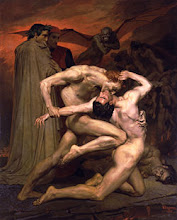_-_Dante_And_Virgil_In_Hell_(1850).jpg)



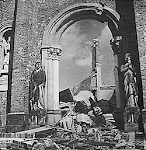











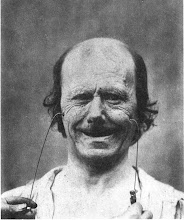
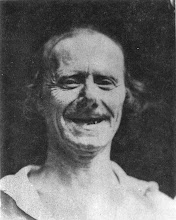


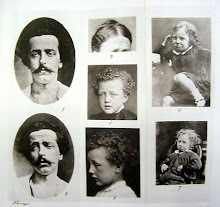






















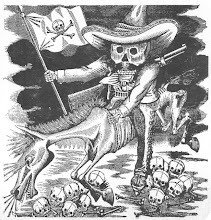












3 comments:
I am not convinced on the 'cruel' argument, but Texas seems to have a low threshold to get in the Big House.
In most places, you would have to prove intent in murder cases for it to become a capital crime. Here, you just have to be engaging in a felony.
I am pretty sure that the vast majority of the armed robbers, for example, do not rob a store intending to kill the clerk; they are there to rob.
Certainly, the robbery is an aggravating factor in a murder trial, but the murder was not the intent.
Just me, but that is a big leap we seem to be taking.
There are some excellent moral/ethical writings supportive of the death penalty. Here are a few. I hope you have the chance to read them.
(1) John Stuart Mill, speech on the death penalty
http://www.mnstate.edu/gracyk/courses/web%20publishing/Mill_supports_death_penalty.htm
(2)"The Death Penalty", by Romano Amerio, a faithful Catholic Vatican insider, scholar, professor at the Academy of Lugano, consultant to the Preparatory Commission of Vatican II, and a peritus (expert theologian) at the Council.
www.domid.blogspot.com/2007/05/amerio-on-capital-punishment.html
titled "Amerio on capital punishment ", Chapter XXVI, 187. The death penalty, from the book Iota Unum, May 25, 2007
(3) Immanuel Kant, "The Right of Punishing", inclusive of the death penalty
http://web.telia.com/~u15509119/ny_sida_9.htm
(4) "Capital Punishment: A Catholic Perspective",
by Br. Augustine (Emmanuel Valenza)
www.sspx.org/against_the_sound_bites/capital_punishment.htm
(5) "Defending Capital Punishment" by William Gairdner
http://www.williamgairdner.com/defending-capital-punishment/
(6) "Capital Punishment: The Case for Justice", Prof. J. Budziszewski, First Things, August / September 2004 found http://www.orthodoxytoday.org/articles4/BudziszewskiPunishment.shtml
(7) Just Violence: An Aristotelian Justification of Capital Punishment
http://www.csuchico.edu/pst/JustViolence.htm
(8) "Catholic and other Christian References: Support for the Death Penalty", at
www.homicidesurvivors.com/2006/10/12/catholic-and-other-christian-references-support-for-the-death-penalty.aspx
Dudley Sharp, Justice Matters
e-mail sharpjfa@aol.com, 713-622-5491,
Houston, Texas
Mr. Sharp has appeared on ABC, BBC, CBS, CNN, C-SPAN, FOX, NBC, NPR, PBS , VOA and many other TV and radio networks, on such programs as Nightline, The News Hour with Jim Lehrer, The O'Reilly Factor, etc., has been quoted in newspapers throughout the world and is a published author.
A former opponent of capital punishment, he has written and granted interviews about, testified on and debated the subject of the death penalty, extensively and internationally.
I'm curious if those who believe minors should be subject to the death penalty are advocating same for the 8 year old in Arizona accused of killing his father?
BObby WC
Post a Comment